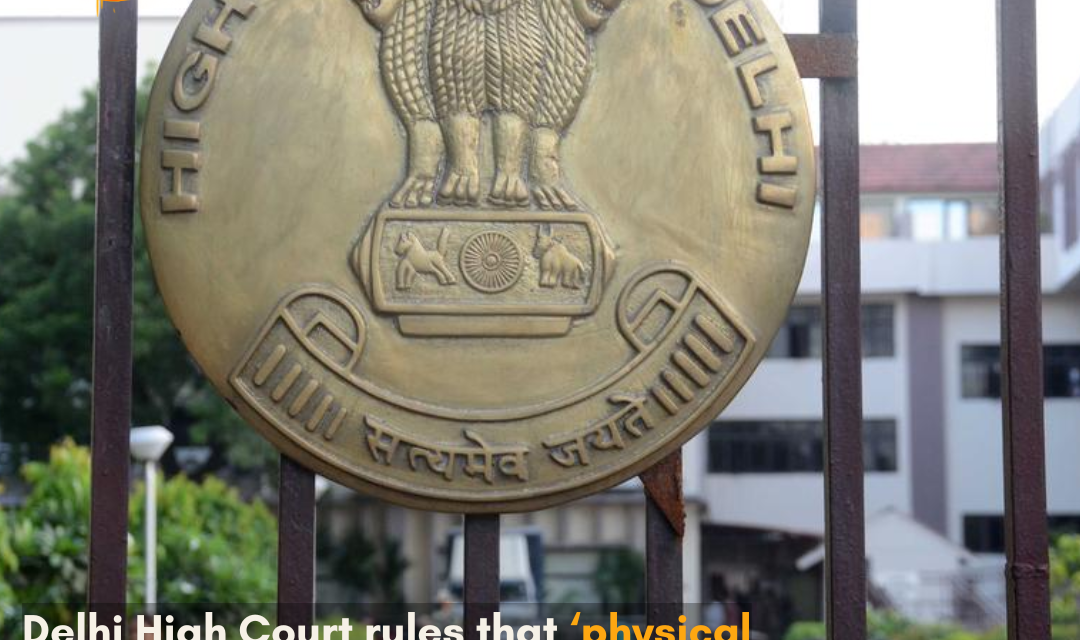The complaint in this case was lodged by a minor girl’s mother in 2017, alleging that her daughter had been lured and kidnapped from her home.
The Delhi High Court has acquitted a man in a Protection of Children from Sexual Offences Act (POCSO) case, saying that the use of the phrase’ physical relations’ by the minor survivor cannot automatically mean sexual assault, reported PTI.
Delhi High Court says that physical relations do not always mean sexual assault.
The high court bench of Justices Pratibha M Singh and Amit Sharma allowed the appeal filed by the accused, who was given imprisonment of a lifetime. The bench observed that it was unclear how the trial court concluded that there was any sexual assault when the minor survivor had “voluntarily” gone with the accused. As per the PTI report, the high court stated that the leap from “physical relations” or “sambandh” to sexual assault and then to penetrative sexual assault must be established by evidence and cannot be deduced as an inference. PTI quoted the judgement passed on December 23, “The mere fact that the survivor is below 18 years cannot lead to a conclusion that there was penetrative sexual assault. The survivor, in fact, used the phrase’ physical relations’, but there is no clarity as to what she meant by using the said phrase.”
“The phrase’ physical relations’ cannot be converted automatically into sexual intercourse.”
It continued, “Even the use of the words’ samband banaya’ is not sufficient to establish an offence under Section 3 of the POCSO Act or under Section 376 IPC. Though consent would not matter if the girl is a minor under the POCSO Act, the phrase’ physical relations’ cannot be converted automatically into sexual intercourse, let alone sexual assault.” The court further said, “The impugned judgement completely lacks any reasoning and also does not reveal or support any rationale for the conviction. Under such circumstances, the judgment is liable to be set aside. The appellant is acquitted.”
In this case, the complaint was lodged in March 2017 by the mother of a 14-year-old minor girl, who allegedly was lured and kidnapped from her home by an unknown person, as stated in a report by PTI.


 Student of Class 12 in Lucknow rammed a car into pedestrians, killing a 6-year-old
Student of Class 12 in Lucknow rammed a car into pedestrians, killing a 6-year-old  Kanpur Lamborghini accident: Tobacco baron’s son Shivam Mishra arrested
Kanpur Lamborghini accident: Tobacco baron’s son Shivam Mishra arrested  3 deaths in Delhi’s Peeragarhi: A ‘Baba’ arrested in connection with the deaths
3 deaths in Delhi’s Peeragarhi: A ‘Baba’ arrested in connection with the deaths  SonuSood offers help to Rajpal Yadav in his ₹9 crore debt case
SonuSood offers help to Rajpal Yadav in his ₹9 crore debt case  The tobacco baron’s son’s speeding car goes on a rampage and injures six people
The tobacco baron’s son’s speeding car goes on a rampage and injures six people  Surajkund Fair swing collapse: The supporting pillar failed and crashed
Surajkund Fair swing collapse: The supporting pillar failed and crashed